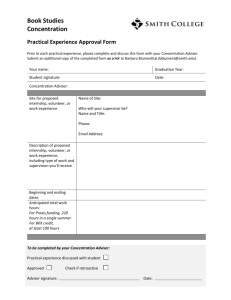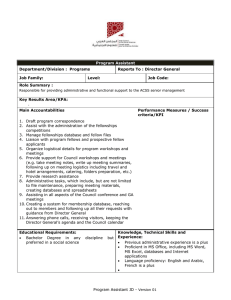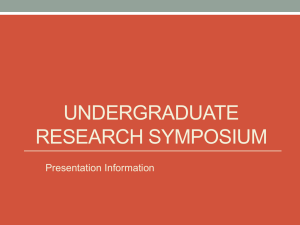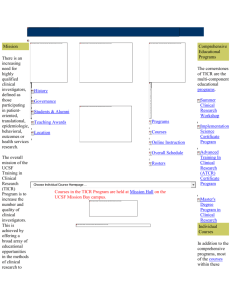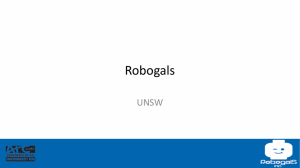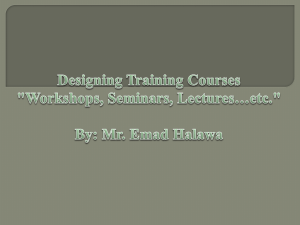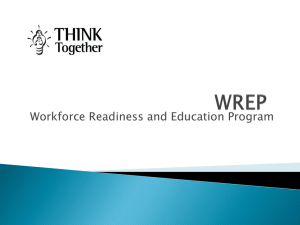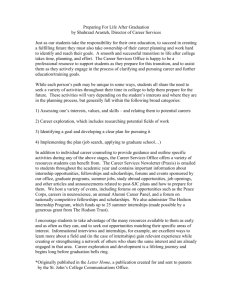your MAP - UCSF Graduate Division
advertisement
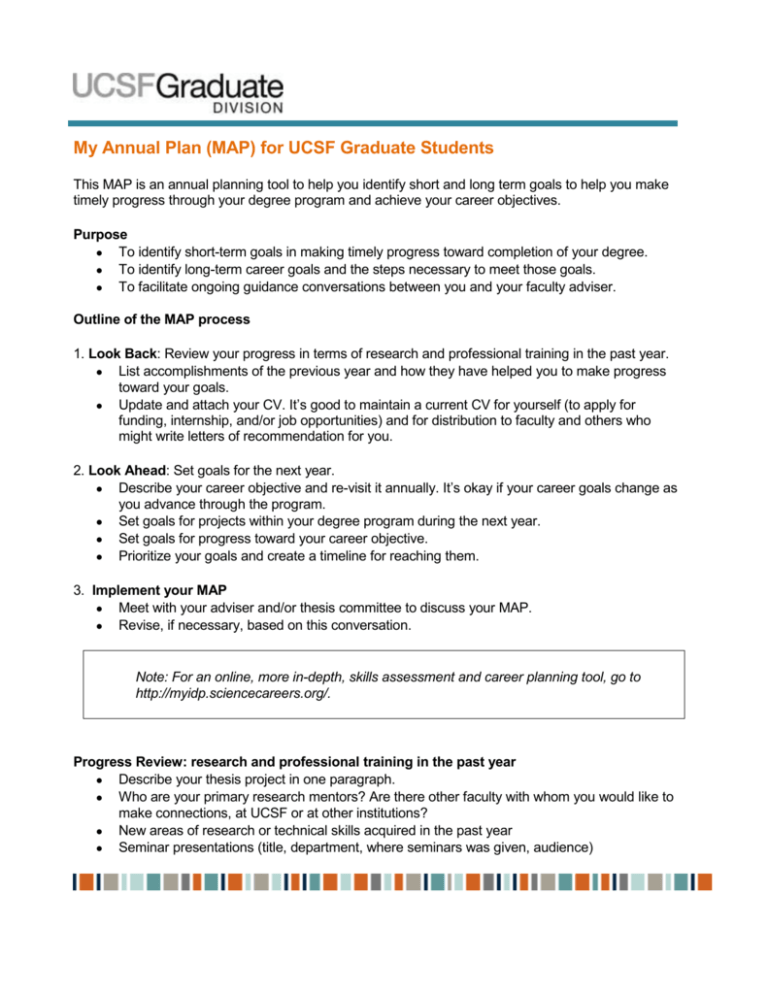
My Annual Plan (MAP) for UCSF Graduate Students This MAP is an annual planning tool to help you identify short and long term goals to help you make timely progress through your degree program and achieve your career objectives. Purpose To identify short-term goals in making timely progress toward completion of your degree. To identify long-term career goals and the steps necessary to meet those goals. To facilitate ongoing guidance conversations between you and your faculty adviser. Outline of the MAP process 1. Look Back: Review your progress in terms of research and professional training in the past year. List accomplishments of the previous year and how they have helped you to make progress toward your goals. Update and attach your CV. It’s good to maintain a current CV for yourself (to apply for funding, internship, and/or job opportunities) and for distribution to faculty and others who might write letters of recommendation for you. 2. Look Ahead: Set goals for the next year. Describe your career objective and re-visit it annually. It’s okay if your career goals change as you advance through the program. Set goals for projects within your degree program during the next year. Set goals for progress toward your career objective. Prioritize your goals and create a timeline for reaching them. 3. Implement your MAP Meet with your adviser and/or thesis committee to discuss your MAP. Revise, if necessary, based on this conversation. Note: For an online, more in-depth, skills assessment and career planning tool, go to http://myidp.sciencecareers.org/. Progress Review: research and professional training in the past year Describe your thesis project in one paragraph. Who are your primary research mentors? Are there other faculty with whom you would like to make connections, at UCSF or at other institutions? New areas of research or technical skills acquired in the past year Seminar presentations (title, department, where seminars was given, audience) National or other professional meetings attended (indicate meeting title, oral or poster presentation) Funding (include fellowships and grants written/applied for/received, professional society presentation awards or travel awards, etc.) Publications What career exploration events or career preparation workshops did you attend? How successfully did you meet last year’s goals? Are there any top-priority goals that you didn’t meet? Why? At this point, what month and year do you expect to finish your degree? Set goals and make plans for the upcoming year 1. Research project and progress toward the PhD Courses to take. Research methods or technical skills to learn. Plans for conducting your dissertation research this year (e.g., literature review, design of experiments, data analysis). How will you write up and present your findings? Grants, fellowships, or other funding opportunities to apply for? Plans to attend any professional/scientific meetings and/or workshops? Plans to present a paper or poster. 2. Professional goals and career planning Describe your current career goal(s). What career exploration events or workshops will you attend this coming year? Are you interested in doing an internship? If so, in what employment sector? How will you seek out such an opportunity? Are you interested in doing any teaching? If so, in what capacity? How will you find teaching opportunities? 3. Create a month-by-month timeline for the next 12 months, taking into consideration time management for setting realistic targets for reaching research project and career goals.
